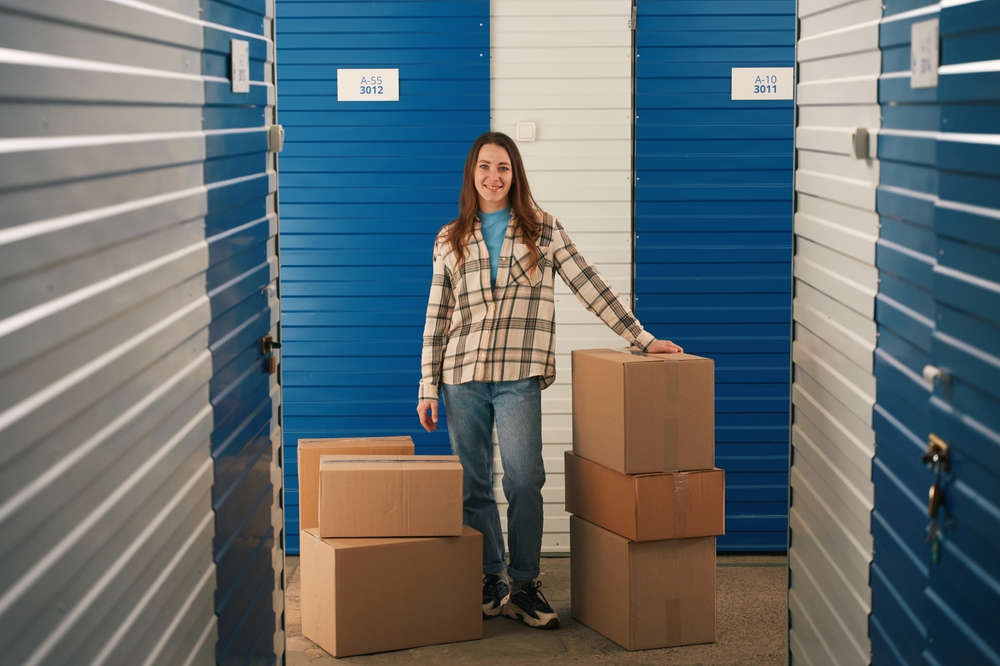Discover the ideal storage unit that suits your requirements effortlessly. Explore a wide range of storage options, sizes, and locations to find the most convenient and secure solution for your belongings. Simplify your storage journey today with user-friendly platforms.
The need for storage units has significantly increased over the years due to the rising demand for extra space. Individuals and businesses alike find storage units to be an efficient and safe way to keep their belongings for short or long periods. This article provides insights into the types of storage units, their average costs, the benefits of renting them, and popular sizes and what fits into them.

Types of Storage Units
There are several types of storage units, each designed to meet specific storage needs. 1) Self-storage units: These are the most common type and are suitable for personal or business use. They offer a secure space where customers can store anything from furniture to documents. 2) Climate-controlled units: These units maintain a constant temperature and humidity level, making them ideal for storing sensitive items like electronics, antiques, and paperwork. 3) Vehicle storage units: These are designed to store vehicles such as cars, boats, and RVs. 4) Mobile storage units: These units are delivered to the customer's location, filled up, and then taken back to the storage facility. 5) Business storage units: These are larger units used by businesses to store inventory, equipment, or documents.
Average Costs
The cost of renting a storage unit depends on various factors such as the unit's size, location, duration of rental, and whether it's climate-controlled. On average, a standard unit's monthly cost ranges from $60 to $180, while a climate-controlled unit costs between $75 and $225. Vehicle storage units can cost anywhere from $45 to $450 per month, depending on the type of vehicle and level of protection. Mobile storage units typically cost between $200 and $300 per month, including delivery and pick-up fees.
Benefits of Renting a Storage Unit
Renting a storage unit offers several advantages. Firstly, it provides extra space to declutter your home or office. Secondly, it offers a secure place to store valuable items, with most facilities offering 24/7 security. Thirdly, storage units offer flexibility as you can access your items whenever you need them. They are also convenient for businesses, providing a cost-effective solution for storing inventory or equipment. Lastly, climate-controlled units offer protection against damage from extreme temperatures and humidity.
Popular Storage Unit Sizes and What Fits Into Them
Storage units come in various sizes to accommodate different storage needs. Here are a few standard sizes and what typically fits into them:
- 5x5 Feet: Comparable to a small closet, this unit can hold small furniture, boxes, and personal items.
- 5x10 Feet: Roughly the size of a walk-in closet, it can store a mattress set, small furniture, and several boxes.
- 10x10 Feet: Comparable to half of a standard garage, it can accommodate the contents of a one-bedroom apartment.
- 10x15 Feet: This unit can store the contents of a two-bedroom apartment, including appliances.
- 10x20 Feet: Similar in size to a standard one-car garage, it can store the contents of a three-bedroom house or even a vehicle.
- 10x30 Feet: This is the largest standard unit and can store the contents of a four to five-bedroom house, making it ideal for large-scale storage needs.
Storage units provide a versatile, secure, and cost-effective solution for various storage needs. Whether you are looking to declutter your home, store valuable items, or find a safe place for your vehicle, there is a storage unit tailored to meet your specific needs. Knowing the types, costs, and sizes of storage units available can help you make an informed decision that best suits your storage needs.